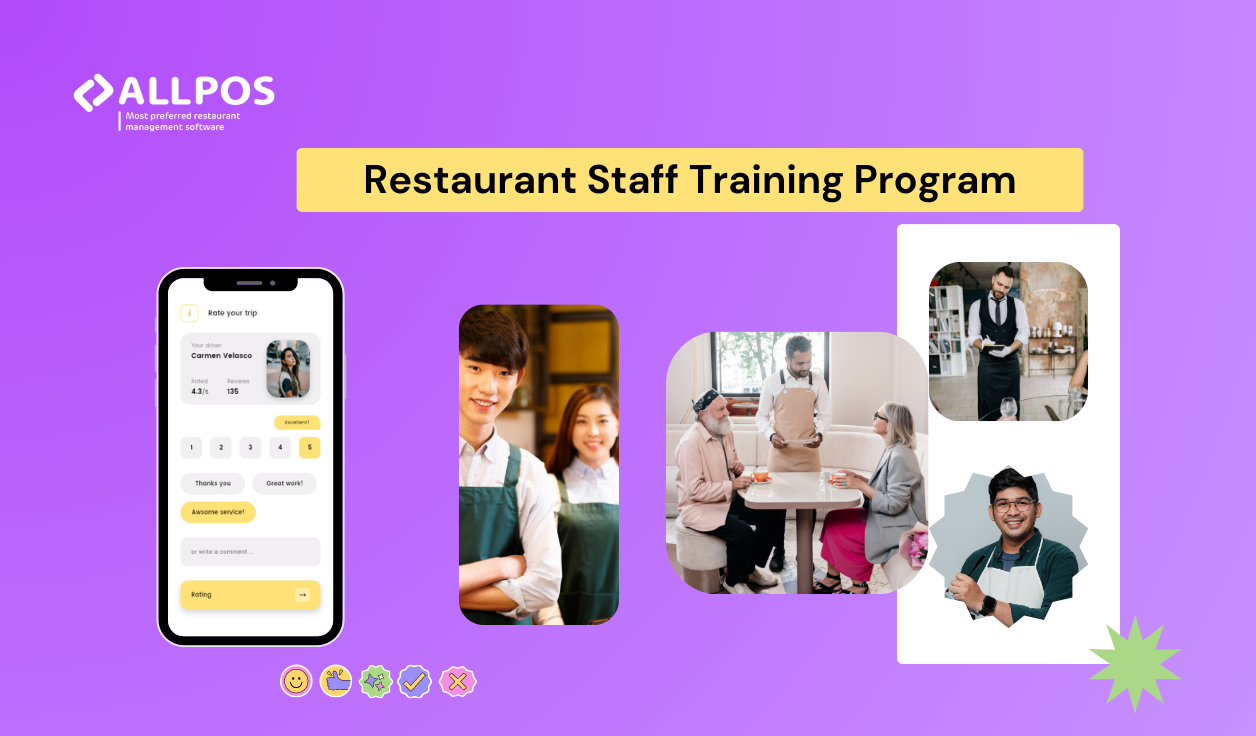Creating an Effective Restaurant Staff Training Program: A Step-by-Step Guide

Running a successful restaurant isn't just about serving great food; it's also about delivering outstanding customer service. To achieve this, a well-structured and comprehensive training program for both front of house (FOH) and back of house (BOH) staff is essential. In this guide, we'll explore the importance of staff training, delve into the specifics of training both FOH and BOH staff, and discuss the most common methods used in the restaurant industry.
Why is Training Important for Restaurant Staff?
Training is the backbone of a successful restaurant. It ensures that your staff can perform their duties efficiently and consistently, resulting in satisfied customers and a positive reputation. Here's why training is crucial:
Consistency:
Training ensures that every staff member follows the same standards and procedures, guaranteeing a uniform dining experience for your customers.
Quality Control:
Proper training helps maintain the quality of food preparation and service, reducing the chances of errors or subpar experiences.
Safety:
Safety protocols are paramount in the restaurant industry. Training ensures that staff can handle equipment, food, and emergencies safely.
Customer Satisfaction:
Well-trained staff can provide excellent customer service, enhancing the overall dining experience and encouraging repeat business.
Efficiency:
Training helps staff work more efficiently, reducing wait times and improving turnover rates.
Back of House (BOH) Staff Training
Orientation:
Start with a thorough orientation session covering the restaurant's culture, policies, and safety procedures. Ensure that they understand the kitchen layout and the equipment they'll be using.
Basic Cooking Skills:
Train them in fundamental cooking techniques, including chopping, sautéing, grilling, and baking.
Recipes and Menu:
Familiarize kitchen staff with the restaurant's menu and recipes. Ensure they can prepare each dish to specification.
Food Safety:
Stress the importance of food safety and sanitation. Ensure that they understand and follow FSSAI (Food Safety and Standards Authority of India) principles.
Time Management:
Teach kitchen staff how to manage their time efficiently to meet service demands.
Communication:
Encourage effective communication within the kitchen team to minimize errors and maintain a smooth workflow.
Adaptability:
Train kitchen staff to handle special dietary requests and unexpected situations gracefully.
Front of House (FOH) Staff Training
Customer Service Skills: Emphasize the importance of excellent customer service. Teach staff how to greet guests, take orders, and handle complaints professionally.
Menu Knowledge:
Ensure FOH staff can describe menu items accurately and answer customer questions.
Serving Etiquette:
Train them in proper serving etiquette, including wine service, plate presentation, and order delivery.
Upselling Techniques:
Teach techniques for suggestive selling to increase revenue.
POS System:
Familiarize staff with the point-of-sale system for order entry and payment processing.
Conflict Resolution:
Provide conflict resolution training to handle difficult customers or situations gracefully.
Teamwork:
Encourage teamwork and clear communication between FOH staff and the kitchen.
Common Methods of Training in Restaurants
On-the-Job Training:
This is the most common method in the restaurant industry. New hires work alongside experienced staff to learn the ropes.
Training Manuals and Materials:
Provide written materials, including manuals and instructional videos, to supplement on-the-job training.
Role-Playing:
Conduct role-playing exercises to simulate real customer interactions and service scenarios.
Mentoring:
Pair new hires with experienced mentors who guide them through their training period.
Online Training:
Utilize online courses and e-learning platforms for cost-effective and standardized training.
Workshops and Seminars:
Organize workshops and seminars on specific topics, such as wine knowledge or food safety.
Certifications:
Encourage staff to obtain relevant certifications, which can enhance their skills and career prospects.
Conclusion
An effective restaurant staff training program is an investment that pays off in the form of consistent, high-quality service and satisfied customers. By following the steps outlined in this guide and tailoring your training to the unique needs of your establishment, you can create a team that excels in both the front and back of the house, ensuring the success and longevity of your restaurant.